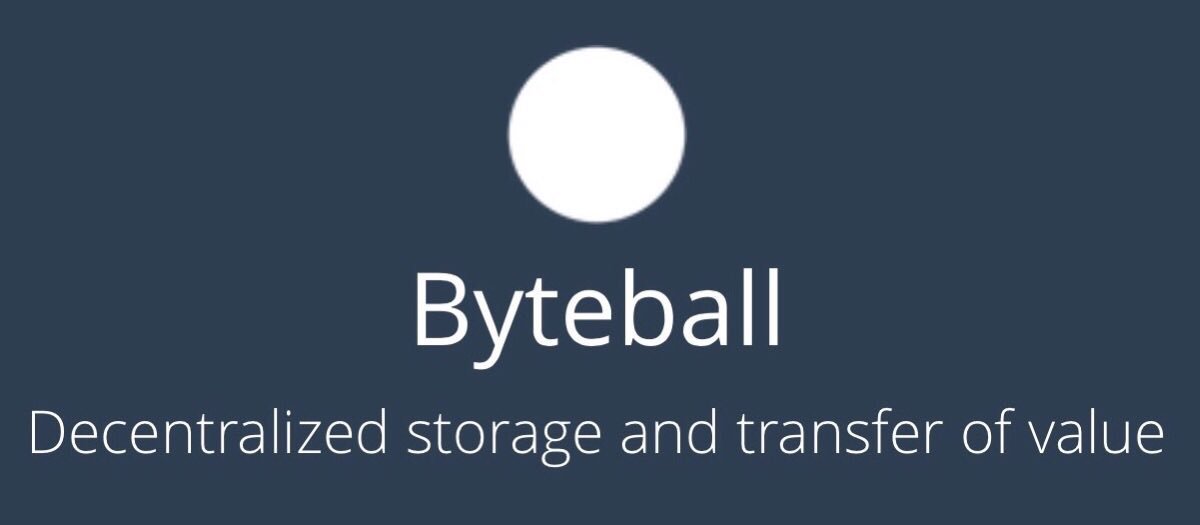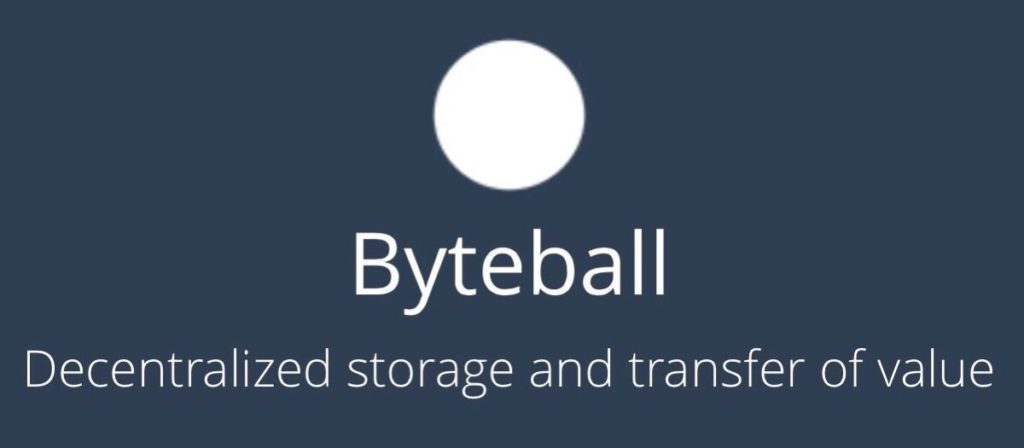Among the most notable blockchain technology developments of these times, Without a doubt Byteball is an example of integration of services and solutions from this technology, into an all-in-one design, all on one platform.
Byteball
Byteball consists of a decentralized system that allows tamper-proof storage of arbitrary data, including data representing transferable values such as currencies, property titles, debt, shares, etc. It is based on its own chain of intelligent blocks and contracts for security of each category of transactions that users wish to carry out. With a versatile variety of features, Byteball offers great security, quick response and viability.
In Byteball there is an internal currency called “bytes” that is used to pay for the addition of data in the decentralized database. Other currencies may also be freely issued by any person to represent property rights, debt, shares, etc. Users can send bytes and other coins directly to pay for goods or services, or to exchange one currency for another; transactions that move the value are added to the database as storage units.
Byteball allows you to do something that traditional currencies cannot: conditional payments. The user establishes a condition when the beneficiary receives the money. If the condition is not met, the user gets their money back.
About its interface and functionality, the platform allows the ease of P2P payments from the application’s own chat. Also with the Chatbot of the application the user can buy by chat with bot of a merchant, and pay in two clicks. Exchanges and other services are also easy to use in the conversation interface.
Smart contracts in Byteball are of full importance. For example the user can create a smart P2P contract that can be unlocked if a specific event occurs. This can be used to bet on price movements and insurance. In insurance, the user can buy insurance to receive payment in the event of a negative event. You can also sell insurance for profit. Insurance is just a simple smart contract that can be unlocked by the insured – if the event in question occurred, or by the insurer – otherwise.
Up for P2P Bets. The user can bet against other users in sporting events and creates a contract that can be unblocked by the user or his counterpart depending on the results of a future game.
Byteball includes a completelly anonymous coin called Blackbyte. When the user wants complete privacy – as in the case of Komodo – he can pay in blackbytes, a currency that cannot be crawled in cash, and whose transactions are not visible in the public database, but are sent peer-to-peer instead.
Other features of Byteball:
Unchanged storage: Once stored in the Byteball database, data cannot be checked or deleted.
Final operation: After certain criteria are met, a new transaction becomes final. It can not be reviewed by a powerful attacker.
Multi Signature: For security reasons, you may require your funds to be spent only when multiple signatures are provided, ex. From your laptop and from your phone. For the shared control of the funds, signatures of different people may be necessary.
“Blockchain” DAG: Without a doubt one of the main characteristics of Byteball is its new consensus system called DAG (directed acyclic graph) in which there are no blocks, instead each new transaction refers to one or more previous transactions (parents) as they are included, the previous transactions are also included and confirmed.

Just Byteball Initial Distribution Rounds.
98% of all bytes and black bytes will be distributed to current Bitcoin owners who wish to test their Bitcoin balances during at least one of the distribution rounds. No investment is required, you only need to link your Bitcoin and Byteball addresses by making a small BTC payment or by signing a message with your Bitcoin address. Then the number of bytes and black bytes that the user will receive in each round will be proportional to the balance of his Bitcoin address in the block of that round.
In the first round, more than 70,000 BTCs were linked and 10% of all byte and blackbytes were distributed according to the Bitcoin balances linked in the first Bitcoin block dated December 25, 2016 (Christmas block). In the second to the fifth round, another 9% were distributed, more than 200,000 BTCs were linked at that time.
In the sixth round, which is scheduled for the June full moon (June 9, 2017 at 13:10 UTC), Byteball will distribute 62.5 MB for each 1 BTC linked balance and 0.2 new byte for every 1 Byte you already have. To participate, the interested party must install the Byteball portfolio and chat with the Transition Bot that will help you to link your Bitcoin and Byteball addresses. At all times you can follow the process in the byteball web.
If you want to learn more about Byteball technology, we recomend you to read its white paper at https://byteball.org/Byteball.pdf






